Life
Sign up for our newsletter
We summarize the week's scientific breakthroughs every Thursday.
-
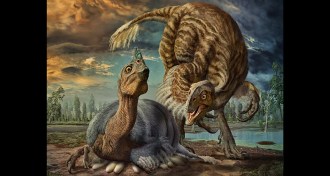 Paleontology
Paleontology‘Baby Louie’ dinosaur identified as a new species
A fossil embryo known as Baby Louie has been identified as a new species of dinosaur called Beibeilong sinensis.
-
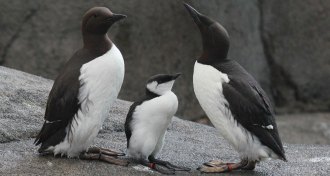 Animals
AnimalsSeabirds use preening to decide how to divvy up parenting duties
Seabirds in poor condition may communicate this information to their partner by delaying or withholding preening.
-
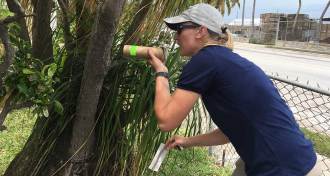 Animals
AnimalsIn Florida, they’re fighting mosquitoes by meddling with their sex lives
As an alternative to genetically modified mosquitoes, Florida skeeter police are testing one of two strategies that use bacteria to meddle with insect sex lives.
By Susan Milius -
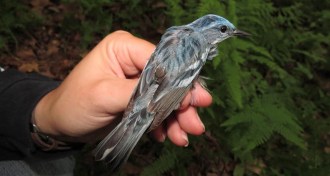 Animals
AnimalsTrackers may tip a warbler’s odds of returning to its nest
Geolocator devices that help track migrating birds could also hamper migration survival or timing.
-
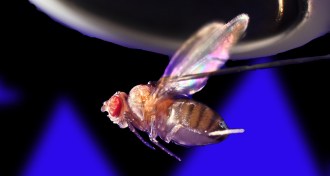 Neuroscience
NeuroscienceInternal compass guides fruit fly navigation
Experiments show how flies navigate — and why this might be important for humans.
By Laura Beil -
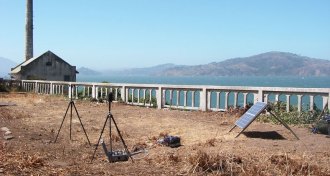 Environment
EnvironmentPeace and quiet is becoming more elusive in U.S. wild areas
Human noise stretches into the wilderness.
-
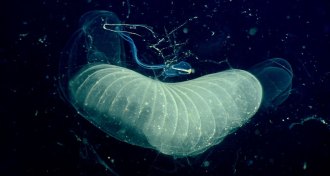 Animals
AnimalsSea creatures’ sticky ‘mucus houses’ catch ocean carbon really fast
A new deepwater laser tool measures the carbon-filtering power of snot nets created by little-known sea animals called giant larvaceans.
By Susan Milius -
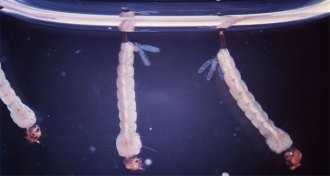 Animals
Animals50 years ago, U.S. fell short on mosquito eradication
Researchers boldly predicted mosquitoes’ demise 50 years ago. They never came close.
-
 Neuroscience
NeuroscienceA baby’s pain registers in the brain
EEG recordings can help indicate whether a newborn baby is in pain, a preliminary study suggests.
-
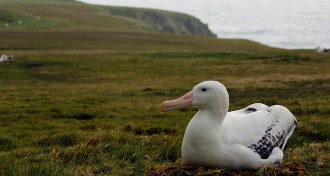 Animals
AnimalsBig dads carry weight among wandering albatrosses
For male albatrosses, bulking up impacts survival and reproduction.
-
 Health & Medicine
Health & MedicineReaders concerned about cancer’s sugary disguise
Tricky cancer cells, brain-shaping smartphones, a cow-burying badger and more in reader feedback.
-
 Climate
ClimateLakes worldwide feel the heat from climate change
Lakes worldwide are warming with consequences for every part of the food web, from algae, to walleye, to freshwater seals.